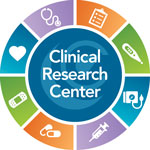By Julie Carrico, MBA, CCRC
In our clinical trial work for Alzheimer’s, we’ve found that many people don’t understand what dementia is and how it is related to the disease. So, what do potential study patients and their concerned family and friends need to know about dementia, along with mild cognitive impairment, that will help them during their discussions with physicians?
First, “dementia” is a general term. It is the condition that can result from one or more medical events. Most people are aware that dementia can be caused by a brain disease, such as Alzheimer’s. However, it can also be the side effect of certain types of infections or immune disorders, B vitamin deficiencies, chronic alcoholism, reactions to medications, stroke, poisoning, and traumatic brain injury.
Many people fear that the diagnosis of dementia automatically infers Alzheimer’s disease. However, only a complete examination by a physician can determine the root cause.
Along with Alzheimer’s, the other diseases of the brain most associated with the cause of dementia are frontotemporal degeneration (FTD) and Lewy body disease. Each of these diseases brings characteristic behavior changes and may cause physical changes in the brain that enable physicians to differentiate the cause of dementia.
Diagnosis is complex and can be even more difficult because patients sometimes have more than one disease process. When this occurs it is called mixed dementia. Unfortunately at this time, the dementia resulting from these three diseases is not reversible.
Patients suspected of having dementia are sometimes initially diagnosed with “mild cognitive impairment” (MCI). How does MCI relate to dementia? Patients with MCI have memory issues beyond what is normal for their age. They often lose things, forget events and may have trouble finding the right words at times. MCI may be an early indicator of Alzheimer’s disease.
There are many online resources available to provide education. Also, don’t forget the local Oregon Alzheimer’s Association or the Alzheimer’s Network of Oregon – both of these organizations have LOTS of resources, including many classes and events to support patients and their caregivers.
The Clinical Research Center is currently seeking volunteer patients in two studies for those with mild Alzheimer’s disease, a dust mite allergy study, several Type 2 diabetes studies, and a study for those with very high triglyceride levels.
If you are interested in learning more about clinical trials, contact the Clinical Research Center at 541-766-2163, or send an email to research@corvallisclinic.com or fill out our Research Study Information Request form. And, don’t forget to follow us on Facebook at https://www.facebook.com/corvallisclinicresearch.
– Julie Carrico, a Certified Clinical Research Coordinator, is Associate Coordinator of The Corvallis Clinic Clinical Research Center
